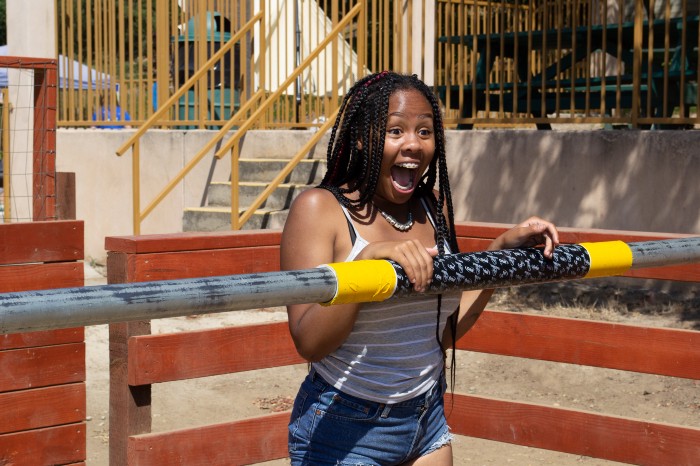I remember attending my first “Sharing Circle” in 2009, the year we opened our inaugural camp for grieving children in Maine. I sat on the dusty wood floor of a camp cabin and listened to the stories of a group of boys that were brought together for the most unfortunate of reasons: All of them had experienced the death of a parent or sibling. Each boy had a turn to share. There were tears, long pauses, and a sense of heaviness throughout the room as the details of their stories came out and photos of their loved ones were passed around the room.

Then the bugle call for the next period rang out through the speakers, and those boys hopped up, grabbed their towels, and ran off to the lake, making jokes and cracking up.
I had just witnessed modern grief theory in its purest childhood form. Researchers Margaret Stoebe and Henk Schut created a grief model called the Dual-Process Model, which says, among other things, that it is healthy to face your grief head-on (sharing stories, looking at old photos, letting yourself feel all the feels) and then take a total break from it (listening to music, going out with friends, watching funny movies).
For children, this back and forth tends to occur naturally. Their brains are wired to live in the moment, whether that moment involves quiet reflection or a spirited game of Capture the Flag. Summer after summer, we have the pleasure of watching over 1,000 grieving kids throw dance parties in the dining hall after lunch, experience giggly hair-braiding sessions in the bunk, and drink milkshakes that drip down their chins. We not only give them permission to feel joy but we give them supportive role models to reinforce how important it is. Being with other peers who are grieving and playing helps further normalize the process.
Unfortunately this natural tendency for “joy breaks” is often disrupted by expectations from a society that doesn’t really “get” grief. We sometimes hear from concerned adults that a child does not seem to be grieving “the right way” because he doesn’t cry or she is very silly. They worry that a child who is having fun may be in denial about a death. It’s understandable given that adults hear often about the importance of acceptance when it comes to death. For example, well-known grief psychologist William Worden lists “acceptance” as one of the four key tasks of grieving and says “denial hinders grieving and in the long term can make you feel worse.”
But taking playful breaks from grieving is not denial (note: Worden doesn’t suggest that it is.) Making kids feel like it is denial can wreak havoc. Kids will tell us they feel guilty for laughing when they “should” be sad. It’s critical that they know that joy is as much a part of the grieving process as pain. And it’s a message that is crucial to get out right now: studies estimate that 100,000 kids in the U.S. have experienced the death of a parent or guardian due to COVID-19. That is in addition to the 5.3 million U.S. children grieving the death of a parent, sibling or caregiver from other causes.
So it is on us, especially parents, to tell young people that it’s healthy and even healing to have moments of silliness and happiness while grieving. We can smile when we catch kids in a moment of joy and say, “I love seeing you laugh.” We can even join in.
We can also keep listening and following the lead of children because they have much to teach us when it comes to navigating grief. As British psychiatrist and grief expert Colin Murray Parkes says, “Adults cannot grieve all the time and may need permission to return to work or do other things that enable them to escape, even briefly, from grief.” In addition to supporting our grieving kids, let’s make sure we’re helping spread this permission for joy to grieving adults, too.
Sara Deren is the founder and CEO of Experience Camps, a nonprofit that champions the nation’s 5.3 million bereaved children and runs a network of no-cost camps that help grieving children thrive. She received her MBA from Columbia, and blends her background of 12 years in finance and business with her passion for the mission. In 2020, she received an award for “Best Entrepreneurial, Scaling” from Connecticut Entrepreneur Awards, and was named a “Patriots Difference Maker” by The Krafts Family and Patriots Foundation.
